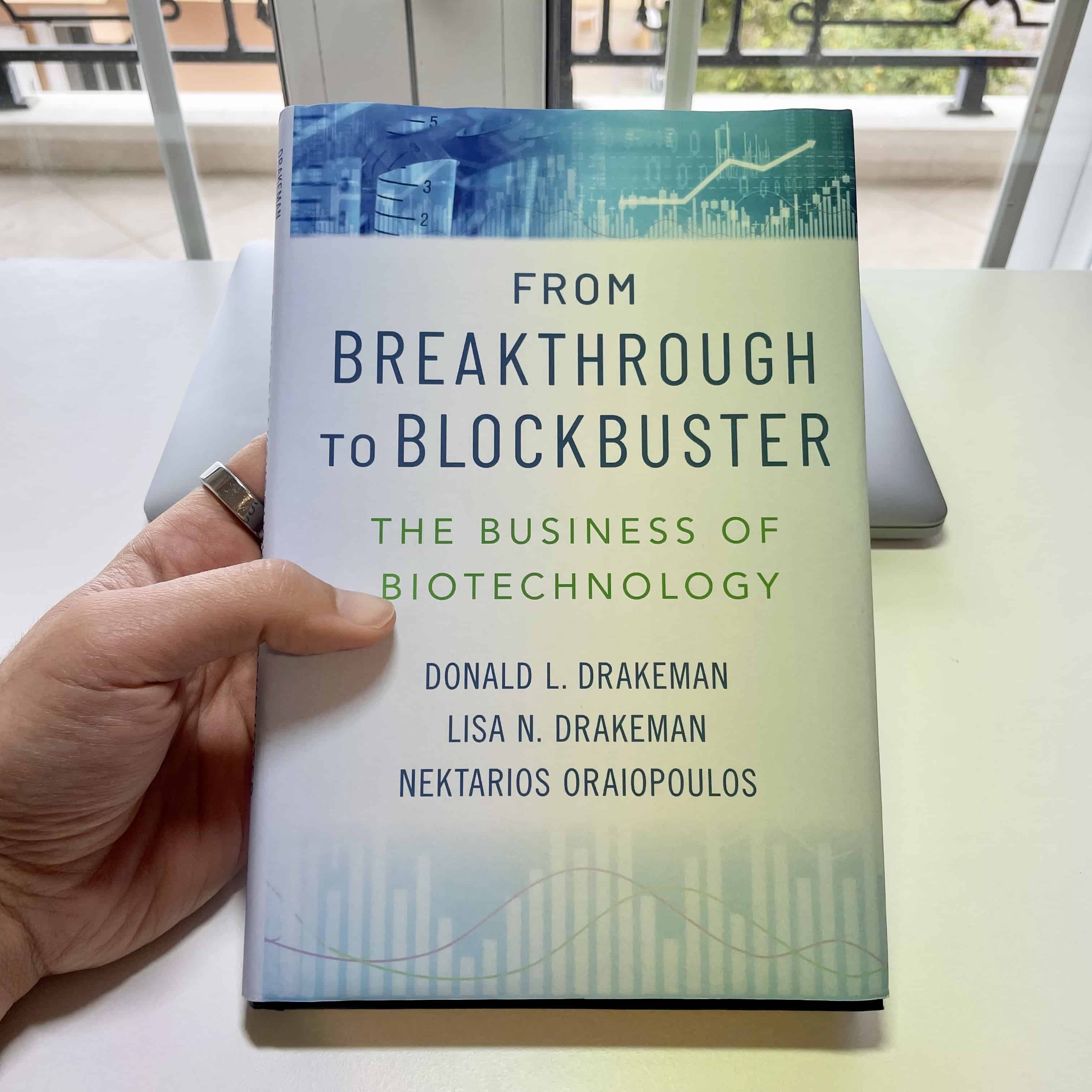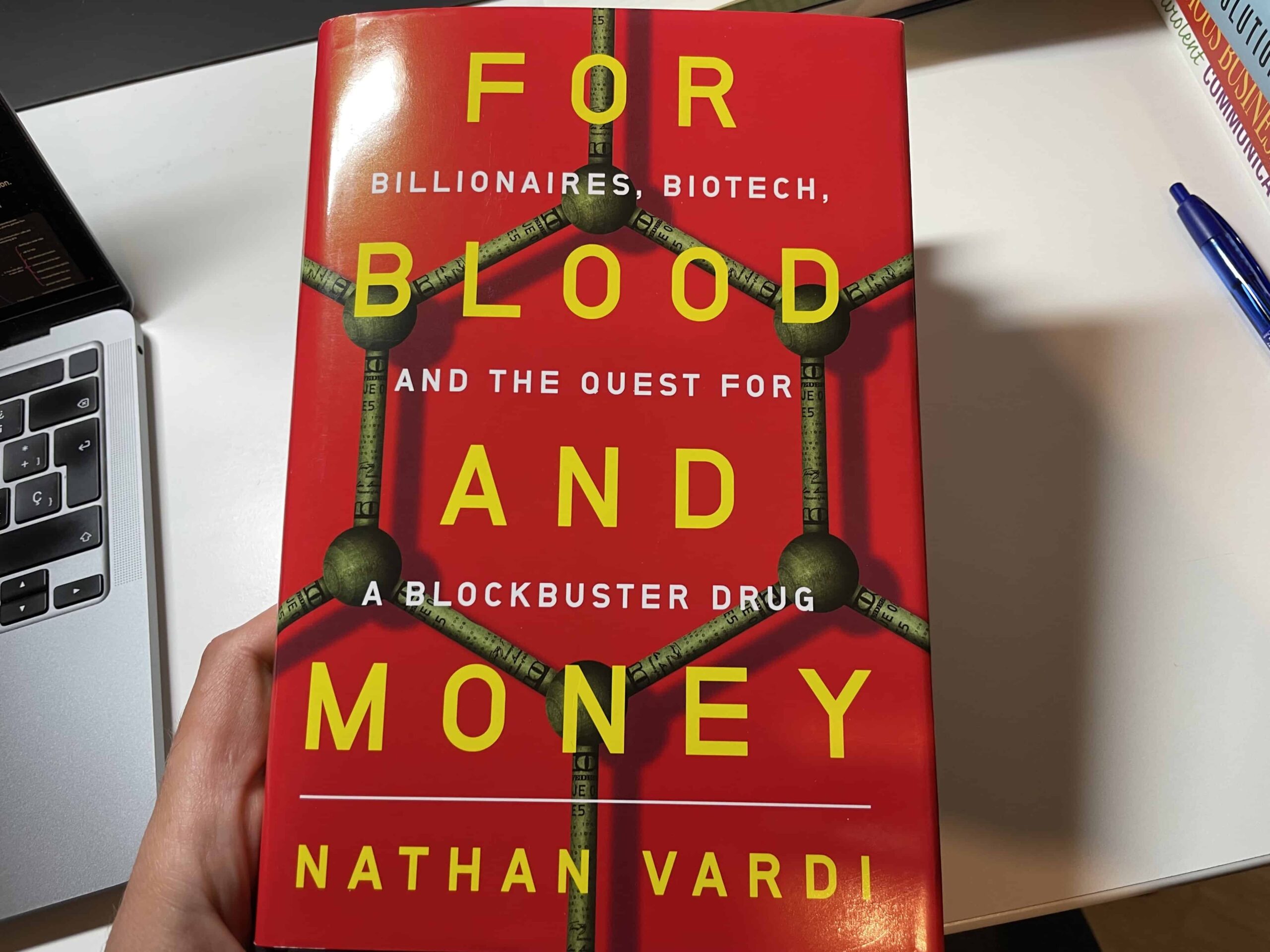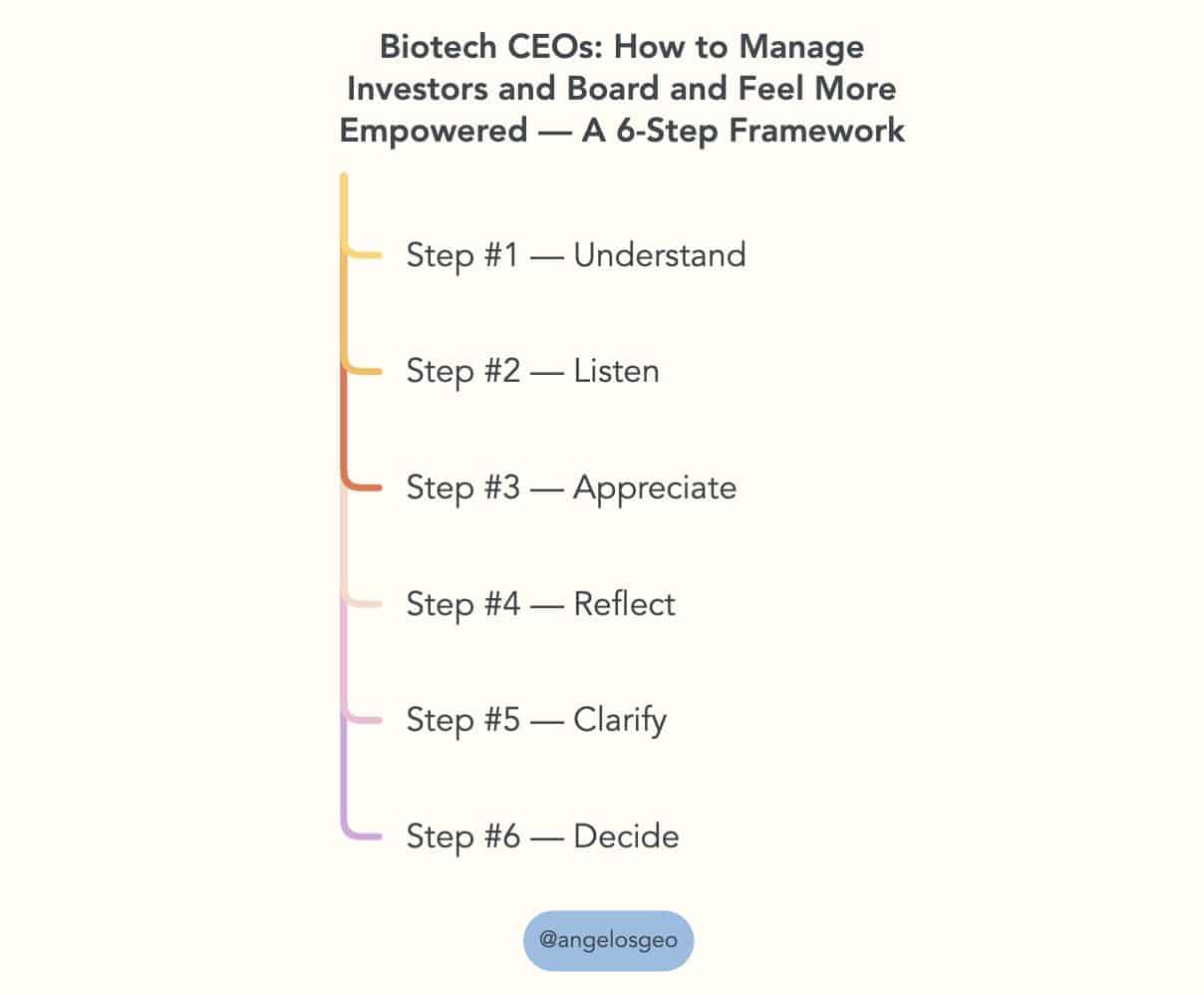-
The Black-and-White Switch
This is one of the biggest realisations from my work with biotech leaders… Your job becomes 100x easier, simpler, more effective, more enjoyable—and less stressful and draining—when you start making decisions like this: Is this going to help the patients? Does this serve the long-term vision of my company and what the hell we set…
-
How Can a Team See the Elephant?

Whether you are a startup team of 3 or a Google team of 100K people, each one of the 3 or 100K sees something that the other 2 or 99999 don’t see. Each one has some sort of micro-information that is not available to the others. Each one can see a part of the elephant,…
-
My Reflections on John Maraganore’s Reflections on Alnylam

I’ve read John Maraganore’s essay “Reflections on Alnylam” a few times and I recommend it to all my CEOs. Here are 12 key lessons from building and leading an iconic biotech company. 1. Trust that voice. If you can’t stop thinking about it, you have to do it… “Driving into work each morning, I couldn’t…
-
Takeaways from the Book “From Breakthrough to Blockbuster”

I’ve discovered a hidden gem! From Breakthrough to Blockbuster—The Business of Biotech. A book about the players, the numbers, and the challenges in the biotech industry. Here are 10 key insights for biotech leaders: 1. Molecules + Money = Medicines The scientists need the financiers; the financiers need the scientists. It’s a marriage, a 100%…
-
Lessons from the Book For Blood and Money by Nathan Vardi

It’s easier and more fun to learn through stories. And here’s a captivating story about the long Odyssey of a biotech company that made it to Ithaca. Pharmacyclics, founded in 1991, is a biopharmaceutical company that gained prominence for its work in oncology, particularly in the development of novel targeted therapies for cancer treatment. Under…
-
The Most Important Mindset Shift for Scientists Who Come out of Academia to Build a Biotech Company
The traditional way to spin a company out of academia is.. you do all this hard work, publish a paper, and then you think “oh maybe there’s a company here!”. But the challenge with this approach is that you might do years of work and realise that you’ve solved the wrong problem. You may think…
-
Fundraising Advice From 10 Biotech Founders Who Have Raised More Than $350 million in VC Funding

1. Tell a story that speaks to a unique opportunity. Investors look for opportunities where they can see the value where no one can. If they think that you’re one of the 100 people doing the same thing, how do they know that *you* will be the winner? Tell your story in a way that…
-
What I Learned From Reading 70+ Interviews with Biotech Founders

I spent over 100 hours researching and reflecting on 70+ interviews with biotech founders. Here are 7 principles these founders all agree on: 1. Fall in Love with the Problem, not your Technology. Building in healthcare is not about how you can use your technology to help the patient. It’s about using whatever technology you…
-
A 6-Step Framework on How to Manage your Board and Investors

Biotech CEOs and management team, I understand you and empathise with you when you’re getting pulled all over the place by your board and investors. Here is my 6-Step Framework towards feeling more empowered and less overwhelmed. Step #1 — Understand First, you have to understand that the job of your investors and board is…
-
Biotech Founders are Olympic Decathletes!

Here we go… 1. Scientist 2. Drug developer (this is nothing to do with academic science btw) 3. Entrepreneur (product, market, commercialisation) 4. Politician (building and maintaining relationships, networking) 5. Project Manager 6. Psychologist (oh yes, you’re the company’s psychologist) 7. Salesperson (storyteller, fundraiser, spokesman, communicator) 8. FBI Negotiator (IP, partners, investors, FDA, tech transfer)…